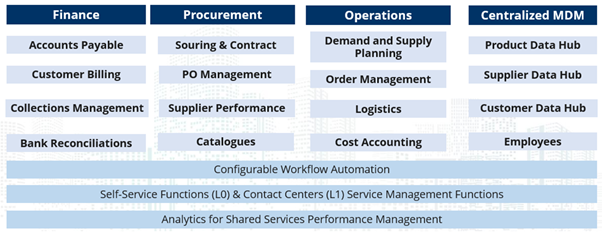We started in 2022 with the good news of the Covid-19 vaccine for children approved by WHO. It was a great relief for all of us as our near and dear ones are protected against the pandemic. Schools started soon after, and things slowly started getting back in line. It was an excellent feeling that the worst was over.
On February 24th, we were struck with the news of Russian forces attacking Ukraine, and since then, there has been news that gives us the feeling that yesterday was a better day. Every development on the geo-political front (long list... US-China tension, China zero Covid policy, China and Taiwan, Nationalism in Europe, Global economic slowdown) is making global business more difficult and costly. Logistics costs are skyrocketing and fuel prices are making operations unpredictable. Annual operating plans for international companies where expenditure budgets that were done in January were proved wrong in July.
Several factors influencing the global economy are hitting hard on every business. Everyone tries to hold the bridge firm, but a few tiles fall apart daily. Inflation/ Stagflation and currencies are getting weaker against the dollar. The advantages of offshore manufacturing, development, and support are fading slowly. Businesses are forced to rethink the operations model as we cannot see the light at the end of the tunnel. The issue in business communities is how to compete due to deglobalization effects.
- Will it be over soon, maybe by the end of 2022? Maybe not!
- If not, how much time will it take, and what are the conditions affecting the specific business (what could be the worst possible scenario?)
- Should we shift to a local/regional-distributed business model?
- How to attract and retain talent under the proposed deglobalized model?
- Complicated finance and compliance regimes
- Impact on COGS and bottom line
Whichever side the pendulum goes, it will undoubtedly impact the Transactions processing system or ERP.
The classical shared services business model aims to standardize and simplify business processes across global operations. Centralize and consolidate functions and systems, leverage best practices, and automate workflows to reduce rework and errors. (Assuming the world is flat)
A typical shared services business model contains:

Any decision reacting to the current global scenario will show the deglobalization impact on business process execution. Supply Chain and Logistics operations are affected heavily due to multiple factors, and all the international players are thinking of remodeling the sourcing hubs. This needs to be handled along with constantly raising cost pressure.
If you are already on ERP like Oracle Fusion Application and NetSuite, it will help you to minimize the impact and continue operations with minimal changes. If you still need to get on Oracle Fusion, this is the right time to act on it.
Jade Global, with 19+ years of experience across multiple industries, has delivered 140+ Oracle and NetSuite projects. We have a team of 600+ professional associates focusing on eight micro-verticals. We can help you to resolve your current issues and mitigate risks. For more details, please visit our Oracle Cloud Services webpage.













